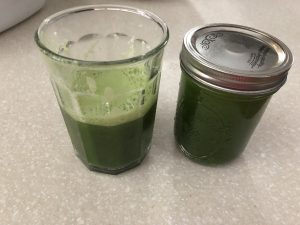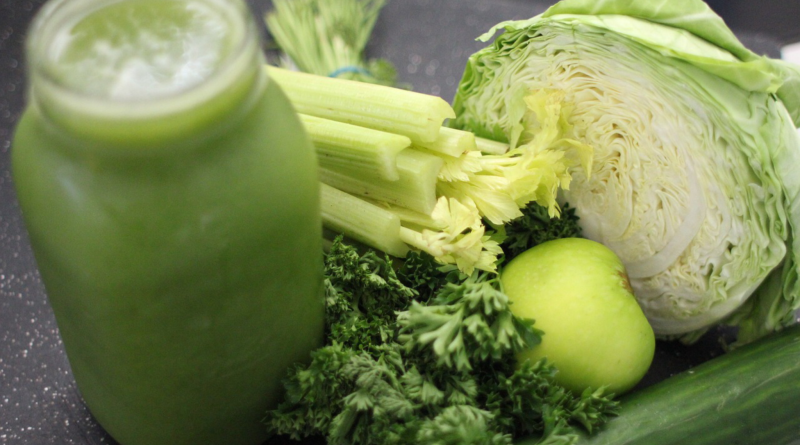Spring Clean Your Body: Detoxification for All
New patients often expect that one of the first things I’m going to do is “put them on a cleanse” to detox their body. I do, but it’s usually not the 2 week supplement program they are expecting. These programs can be helpful, but limited time interventions often have limited time results. Because the body is always detoxifying, I recommend focusing on a lifestyle that reduces new exposures and supports the processes of elimination every day for lifelong impact. Below are some practical and simple suggestions you can incorporate starting today.
A metaphor for our body’s detox processes is a leaky bucket. The bucket is filled through toxic exposures. The hole or holes in the bucket empty the bucket through our body’s detoxification and elimination pathways. Depending on the rate the bucket is being filled and the rate of leakage, the bucket fills up faster or slower. The bucket overflowing corresponds to developing symptoms. We know every body is different – in this metaphor, you can consider that your bucket is a different size than the next person and is more or less leaky. This is why some people are highly sensitive to toxicity and others plow through life seemingly unaffected.
This metaphor is useful, because you can see where you can make changes. By far, the most important element in any detoxification program is what is NOT included. In our metaphor, this means reducing the rate the bucket is filled. Reducing exposure to and consumption of toxins is detoxifying. Most detoxification programs restrict certain foods or recommend 100% organic. Consider other routes of exposure such as skin and respiration – your body care and home cleaning products are another route of exposure and there are less toxic options available.
Start reducing your exposure every day by:
- Start eating organic. If you aren’t sure where to prioritize including organics, start with the EWG’s Dirty Dozen list which includes those produce items which are most heavily laden with pesticide residues.
- www.ewg.org/foodnews/dirty-dozen.php
- Discontinue scented products. Chemicals in even “natural” fragrances can be respiratory irritants or even neurotoxic.
- Review your skin and body care products on the EWG’s Skin Deep database and start transitioning to lower hazard options.
- www.ewg.org/skindeep/
Next we consider how the bucket is emptied. This means supporting the processes of metabolism and elimination of toxins. Our liver eventually metabolizes all the substances circulating through our blood stream and our kidneys, skin and digestive tract provide an exit route for elimination. A lot of cleanse products focus on this part with supplements to support liver function and fiber supplements to aid in elimination through stool. They aren’t wrong, those kinds of things can be helpful, but we want to take a lifestyle approach so we are supporting detoxification every day.
Support your detoxification and elimination processes every day by:

- Make sure you are having a bowel movement every day. Constipation is never “normal for you” and it’s not healthy. At least one bowel movement every day is recommended.
- Increase dietary fiber with vegetables, fruits, oats, whole grains, and flax and chia seeds. Increase slowly to avoid digestive upset.
- Eat cruciferous vegetables every day. Vegetables in the cabbage family are rich in fiber but also contain phytochemicals which upregulate detoxification enzymes, supporting both metabolism and elimination. Green juices and smoothies act similarly and can be consumed daily.
There is a lot more to say about detoxification, but hopefully this introduction gives you some simple steps you can use to start living a detoxifying lifestyle today. And as always, if you need additional support, I’m here to help – click here to schedule.
This article was originally published in Tigard Life‘s April 2023 issue. Click here for a PDF of this article in it’s original format.

